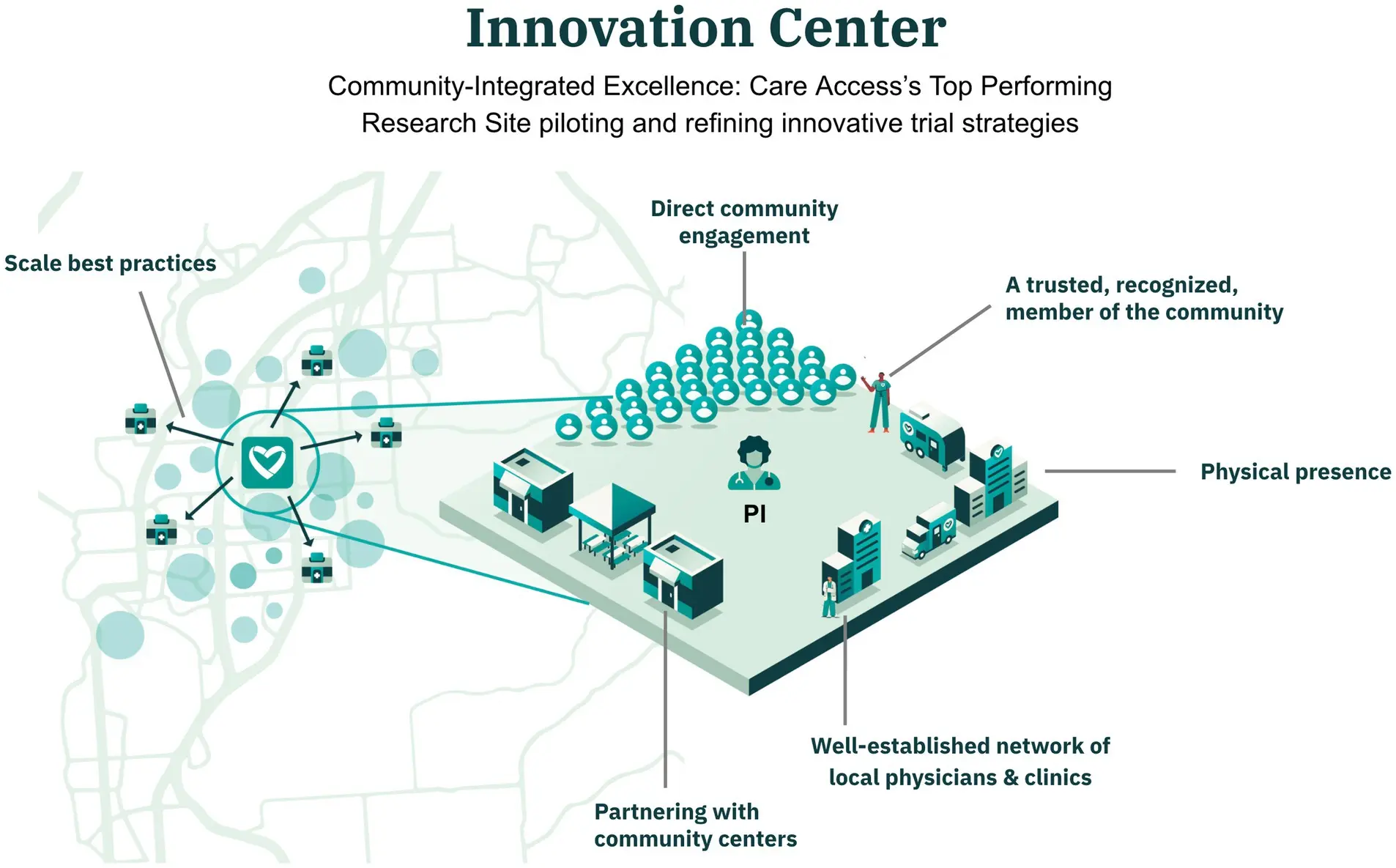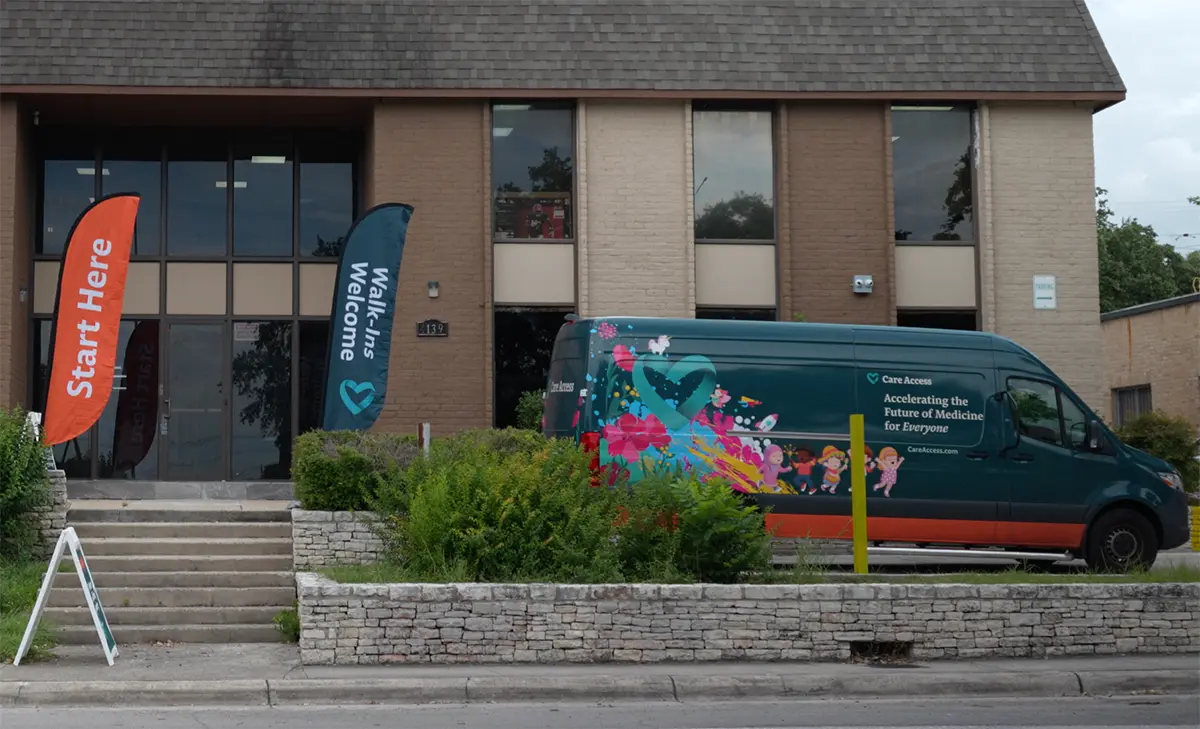Scientific Publication Shows How Care Access’s Research Model Accelerates the Development of Medicines and Brings New Treatments to Patients Faster
In the medical journal Frontiers in Medicine, the authors of the scientific publication provide evidence that Care Access's innovative approach helps more people join clinical trials, leading to quicker access to new treatments

A new study published in the medical journal Frontiers in Medicine shows how Care Access is helping speed up the process of developing new treatments for patients. The study, Decentralized Community-Integrated Research Sites Drive Higher Randomization Rates: Insights from a Large-Scale Neurodegenerative Disease Trial, looked at how Care Access is changing the way clinical trials are done by making it easier for people to participate, regardless of where they live.

Traditionally, clinical trials face difficulty enrolling enough participants, especially those from underrepresented communities. This creates a bottleneck in how many potential medicines can go through a clinical trial and make their way to patients who need them.
Care Access is solving this problem by bringing clinical trial opportunities directly to communities and working together with local healthcare providers and community organizations. Instead of asking participants to travel long distances to a hospital or research center, Care Access uses mobile clinics, convenient community locations, and traveling and remote staff to bring clinical trials closer to where people live.

“We want medicines to work for everyone,” said Dr. Tyler Miller, study co-author and professor at Case Western Reserve University School of Medicine. “People from different ethnic and genetic backgrounds can respond differently to the same treatment. To develop medicines that are truly safe and effective for everyone, we need clinical trials to reflect the full breadth of the population.”
The study provides evidence that Care Access’s community-based model was more successful at enrolling participants in clinical trials than traditional models. Furthermore, participants at community-based sites completed the clinical trial at similar rates to participants at traditional sites. These findings offer compelling evidence that trial enrollment challenges can be solved using a carefully orchestrated blend of innovative and community-centric methods.

“This study confirms what we’ve seen in the field—when you make research more accessible, more people take part,” said Dr. Seyed Khaligh-Razavi, lead author of the study. “That means faster results, better data, and ultimately, quicker access to new treatments for patients everywhere.”
This research highlights how Care Access’s unique approach helps support the entire healthcare system by helping clinical trials finish faster, which can lead to quicker approval of new medicines and more timely treatment options for patients in need.